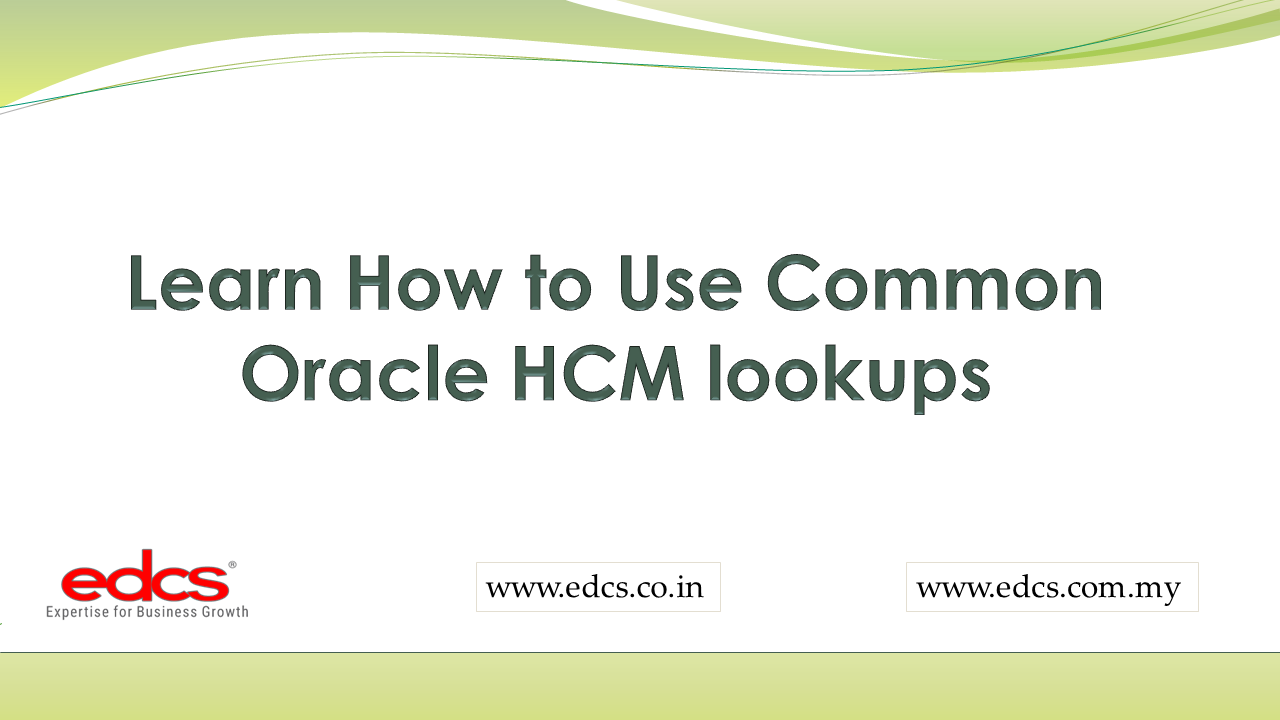The HR department has to maintain personal, legislation-specific, and organization-related data for all employees in their HR applications. It is significant to appropriately oversee and store this information as it will be utilized for reporting. Moreover, this information will likewise be utilized by different applications like finance and outbound interfaces.
Oracle HCM Cloud offers generally such information fields and their qualities out of the container, which assists clients with sticking to the regulative principles and furthermore appropriately keep up with the information. Oracle offers its clients the adaptability to oversee values for these information fields by utilizing the functionality of queries.
Lookups hold a list of values that appear for various fields within an application.
There are three categories of lookups:
1. Standard lookups
2. Common lookups
3. Set-enabled lookups
What are the Common Lookups in Oracle HCM?
Here are some essential details about common lookups.
Normal lookups are predefined lookups that permit clients to add new qualities or empower/incapacitate existing qualities. These are generally maintained by admin users.
To enter a value for the fields inside the application, a client can choose any of the qualities from the available list. There are predefined lookup types accessible for different fields in the application.
Lookup Customization
Oracle Fusion contains certain predefined lookups that you can’t debilitate values for or add new qualities to. Nonetheless, there are a couple of queries that permit you to cripple esteems and furthermore add a few new qualities. In this way, everything relies upon the query design level, as it assists you with really looking at what level of customization is feasible for a query type.
There are three different types of common lookups available in Oracle Fusion that decide the customization for the lookup:
User lookup – This is a flexible type of lookup; you can add new values and also enable/disable the existing values to it.
Extensible lookup – In this type of lookup, you can add new values but cannot disable the existing values.
System lookup – System lookup does not allow you to add or disable the existing values.
Lookup Type and Its Components
Here, you can add esteems to the lookup. Note that this field name will show up on the setup screen and not on the application screen, where clients ordinarily make a entry into the application.
Meaning – This is the name of the field that users will see on the screen, where they will add the value.
Module – This is the name of the module to which this lookup belongs. It might be named as HR or Absence.
Lookup Configuration level – As explained in the above section, lookup configuration has three values:
· User
· Extensible
· System
We can add values, known as lookup codes, in each lookup type.
The lookup codes consist of:
Lookup Code – This signifies the value of each code that we have added. It is not visible to the users but it is used to uniquely identify values added into the lookup type.
Display Sequence – This is used to mention the sequence of values they should appear in, for the users to select. It can be 1, 2, 3, etc.
Enabled – Checkbox helps you to enable or disable any particular lookup code.
Start Date and End date – You can specify a date range for each lookup code to make it available only within that range for users to select. If this is left blank, then it is always available for users.
Meaning – This term will appear in the list of values on the UI for a specific field, which the user can see and select from the drop-down menu. It is associated with the lookup code.
Tag – Tag is used for localizing the lookup code. For example, if we put +GB as Tag then this value will appear only for Great Britain localization; and if we put –GB, then it will not appear for Great Britain. If we leave this blank, it will appear for all areas.



